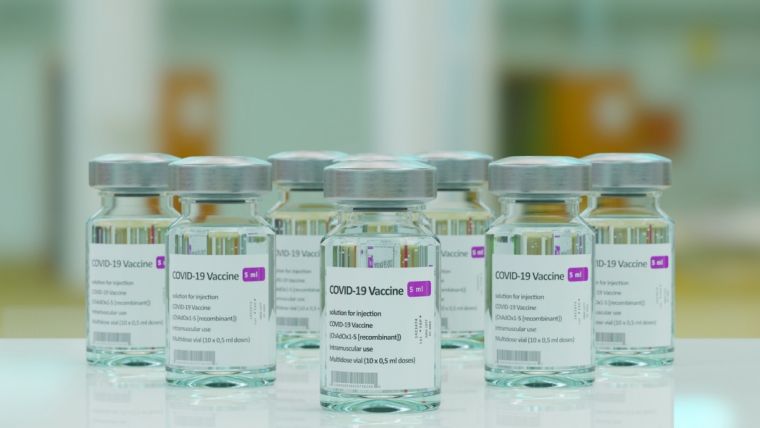The pandemic won't be over for us until it is over for everyone

In my local shopping mall, maintenance staff are peeling off the last floor stickers telling people to "keep your distance" and "wear a mask". They are now remnants of the unprecedented measures taken two years ago today - March 11 - when the World Health Organisation declared the coronavirus global pandemic.
In the UK today, it is tempting to assume we are back to normal thanks to the vaccine rollout and the lifting of restrictions. But this pandemic is global, not local, and it won't be over for us until it is over for everyone.
In many parts of Africa and Asia communities are still suffering from the virus. There is little talk of returning to normal because there had been nothing like the numbers of vaccinations required to break the transmission chains. Neither has there been enough to prevent new variants of concern emerging. Or, worse still, vaccine-resistant strains in the future.
According to UN Data Platforms (UNDP), at the end of January this year, more than 3 billion people around the world were still waiting to receive their first vaccine dose. Rich countries have already reached their mid-2022 target of vaccinating 70% of their populations. In contrast, low-income countries need to be injecting 19 million people a week when in fact it's only 2 million.
This failure to fairly distribute vaccines globally has created a world of "have jabs and have nots". It's costing lives, not just now, but in the months and years to come. It puts at risk all the hard-won sacrifices of isolation and separation over the last two years.
We know from medical experts that the best way to prevent the emergence of vaccine-resistant variants is by ensuring universal access to vaccines. Universal access not just in one country, but in all countries.
The UK Government has admirably ensured early and consistent vaccine stocks here, yet it has not done nearly enough to remove the barriers preventing the rapid delivery of vaccine injections across the global south.
Christian Aid, alongside the People's Vaccine Alliance, has been warning that if this is to be reversed then it will require increased vaccine production by dropping patents and transferring technology.
For the UK, which has sufficient stocks and vaccine contracts, there is a moral responsibility to be much more flexible in redistribution and reduce the scandalous waste of expired vaccines.
These measures would open a door of opportunities for many countries, not least on the African continent where the recent Omicron variant spread most rapidly. The clock is ticking, and we cannot allow more wasted time and more wasted vaccine doses.
Two years on, Christian Aid is continuing to work with its partners to tackle vaccine misinformation and mitigate the economic crisis. As Christian Aid has seen through its work, vaccine hesitancy cannot excuse these numbers. In fact, vaccine hesitancy is lower in many countries in Africa than in the USA or many European countries. The fundamental problem is access.
To maintain momentum on vaccine distribution, Christian Aid is bringing together faith leaders from Burundi, Kenya, Nigeria, Sierra Leone and Zimbabwe today to share their experiences of how they helped communities understand information about Covid-19 and how vaccines are vital to defeat the virus. The role of faith leaders and organisations has been recognised by many - including WHO – as vital to ensuring more people know about and get their vaccine injections.
The event comes in the same week that many faith leaders from around the world are joining political and other leaders in calling for more concerted global action to tackle vaccine inequity. Gordon Brown, Graca Machel, the Duke and Duchess of Sussex and Archbishop Makgoba are among the signatories of an open letter organised by the People's Vaccine Alliance. It calls on governments to do more to ensure everyone who needs a vaccine has one.
Without these necessary reforms, countries with low percentages of vaccinated populations will be compelled to continue with lockdowns and other preventative measures. That in turn particularly hurts casual workers who face job losses and reduced income.
It is not promises that people need, it's vaccines. This is about justice and doing what is right to protect our fellow citizens around the world. If we don't, then at some point in the future those maintenance teams might have to put those stickers back on the floor.
Oliver Pearce is Chief of Policy at Christian Aid.











